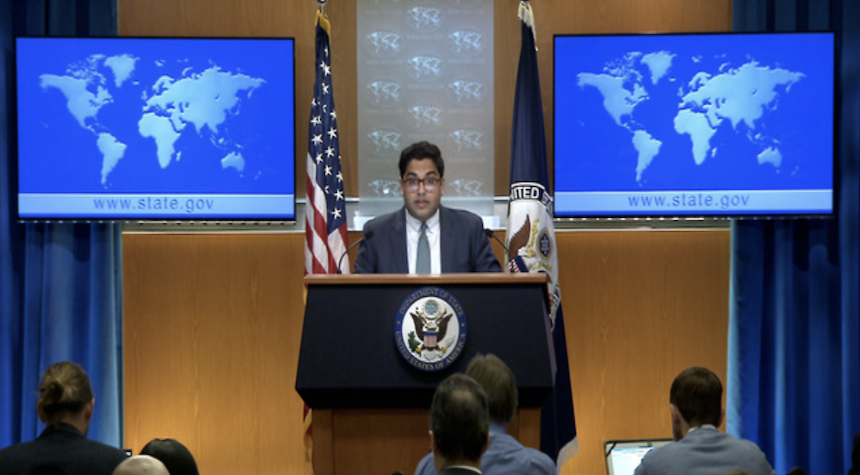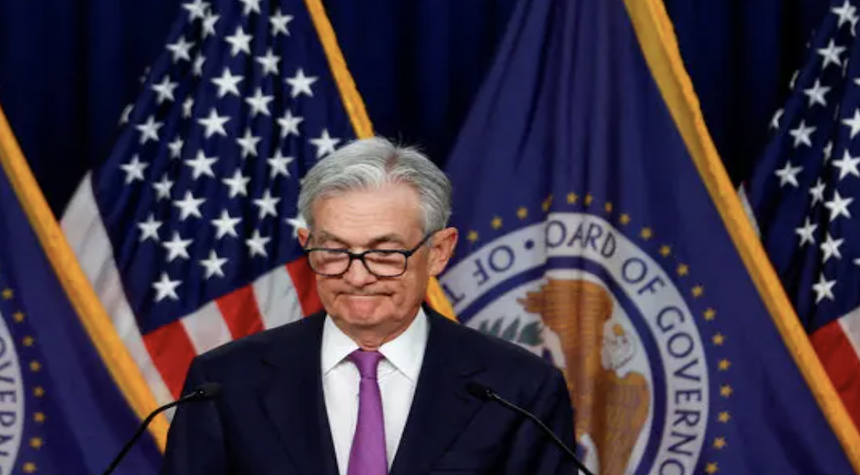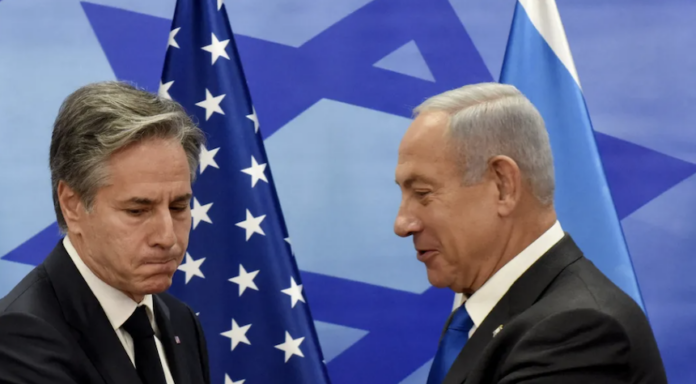The Biden administration, with the U.S. Presidential election only a week away from now, isn’t giving up on short-term agreements for cease-fires to be reached between Israel and Hamas and Hezbollah and Israel in Lebanon.
Officials in the United States are aware that the political uncertainty in the United States makes it difficult for both sides to reach any major agreements until they know who will be the next president.
The Middle East is unsure of what will happen next, after Israel attacked Iranian military targets on the weekend as a retaliation to Iran’s barrage of ballistic missile attacks from Oct. 1.
Officials in the United States said that they do not believe Iran will escalate its response to Israel’s attack, whose targets had been coordinated with Washington. The officials who spoke under condition of anonymity to discuss sensitive diplomatic issues warned that nothing was certain.
The Biden administration managed to convince Israel to limit its response — and gain assurances that it would not hit Iranian nuclear or oil sites, which could have escalated conflict — despite the limited U.S. impact as Biden’s tenure ends. The U.S., as Israel’s key ally and mediator in the Middle East, continues to push for a ceasefire despite past disappointments and low expectations.
Jon Alterman is the director of the Middle East Program of the Center for Strategic and International Studies. He said, “I do not sense that Israelis feel a great deal of urgency.” “I sense that they feel much less urgency than they did a few months ago.”
U.S. effort in Gaza
The U.S. officials said that as conditions continue to worsen, especially in Gaza, the administration supports an Egyptian proposal to implement a cease-fire for two days. This would allow Hamas to release a small number of hostages, and possibly open up more routes to the enclave for much-needed humanitarian aid.

Joe Biden, the president of the United States, said on Monday that he will discuss this proposal with his staff.
“We need to stop the fighting.” This war should be ended. It should end. It should end. Biden said, “It should end.”
One official said that the administration would support any suggestion that led to a reduction of suffering for Palestinian civilians and the release of hostages, but that they “weren’t holding their breath.”
Last week, Secretary of State Antony Blinken visited Israel, Saudi Arabia, and Qatar to gauge the region’s readiness for such an agreement. Officials say Blinken left his meetings with cautious optimism, but acknowledge that similar hopes in the past have been crushed.
Blinken stated last week that “what we have to determine is whether Hamas will engage.” He said that the death of Hamas’ military chief Yahya Sinwar opened a new window for talks about a ceasefire proposal that has been stagnant for months.
William Burns, CIA director, participated in Doha talks with senior Israelis and Qataris on a possible path forward to show the U.S.’s support for a deal. No immediate results were achieved, but it is expected that lower-level discussions will continue this week.
Hamas has refused to accept anything less than an all-out truce, and Israel’s withdrawal from Gaza, despite the heavy losses it has suffered on the ground.
Hamas is yet to respond formally to the Egyptian proposal, although Israel has indicated a willingness for the idea to be considered.
According to U.S. officials who claim that Israel’s battlefield assessment will be a key factor in determining the terms of any agreement, longer-term ideas about the future of Gaza after the conflict are still in the works.

Israel has rejected all governance and security roles for the Palestinian Authority, which is a deal breaker for both them and the Arab nations, whose support is crucial for any plan’s success.
Alterman, an analyst, stated that Israel shows little sign of being motivated to pursue a truce, even though the U.S. elections may have been a factor.
Alterman stated, “From what I understand, it does not feel like we’re on the brink of a breakthrough.”
U.S. push for Lebanon
U.S. officials admit that in Lebanon, where Israel intensified military operations against Hezbollah over the last month, a quick fix is likely unrealistic.
It’s because Israel’s officials distrust Lebanon’s divided political leadership and the Lebanese Armed Forces are yet to take convincing action to prevent Hezbollah from attacking Israel in southern Lebanon.
Amos Hochstein, a Biden aide who has led the administration’s efforts to prevent Israel and Hezbollah from entering a full-scale war, is expected to visit the region in this week to gauge Israeli officials’ willingness to support certain initiatives.
Officials said that depending on what he learns, he could travel to Lebanon and see what the officials are willing to do to stop further Hezbollah missile attacks on Israel’s northern and central regions.
In both Gaza and Lebanon, the situation is complicated by the fact that neither Hamas nor Hezbollah has announced their replacements since Israel recently killed Hezbollah’s Hassan Nasrallah as well as Sinwar from Hamas.


